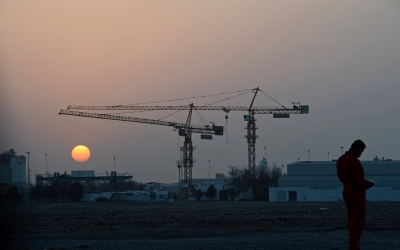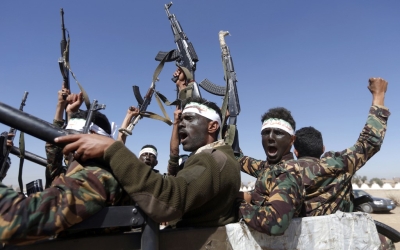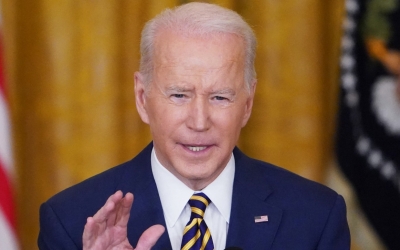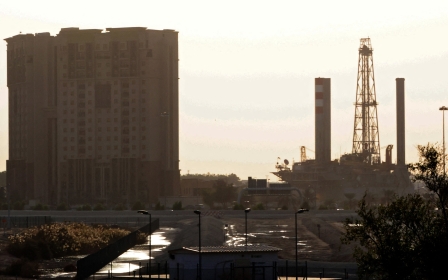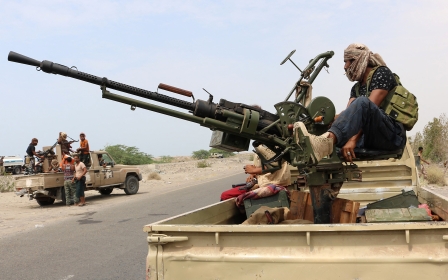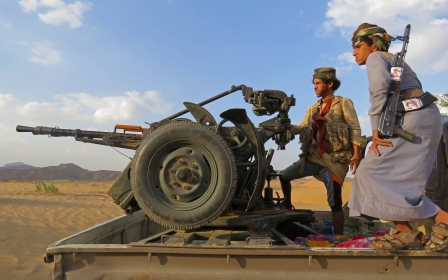Democrats say Biden must clarify US role in Yemen conflict
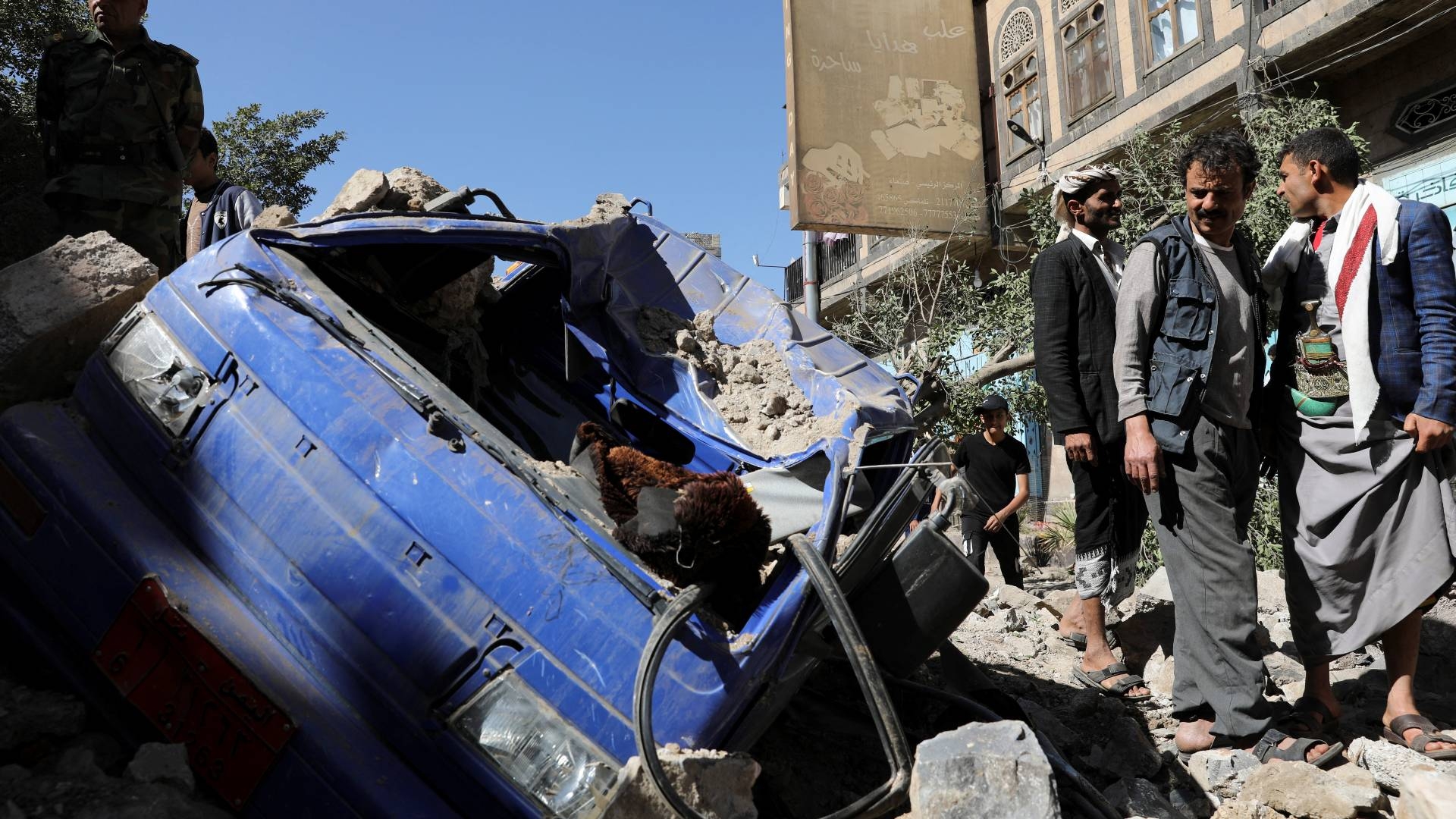
Democratic lawmakers and policy analysts have said President Joe Biden needs to clarify what support the US is offering the Saudi-led coalition at war with Yemen's Houthi rebels, and avoid taking any steps that lead to Washington becoming further embroiled in the devastating seven-year conflict.
Congressman Ro Khanna, a staunch critic of the war, told Middle East Eye that the White House needed to immediately end all military support afforded to the Saudi-led coalition and instead "focus on diplomacy" to end the bloody conflict.
Earlier this week, Houthi rebels launched drone attacks on Abu Dhabi airport and an oil storage site, killing three people and leaving another six injured.
The Iran-aligned group told MEE they targeted the Gulf nation because it was still actively engaged in the conflict and supports Yemeni militias fighting against them.
The Saudi-led coalition responded to the attack on Tuesday by launching several air strikes on Sanaa, the Houthi-controlled capital of Yemen, killing 20 people including a number of civilians.
"This dangerous escalation in Yemen has to stop. For years the Saudi-led coalition has been pounding civilian areas and infrastructure in Yemen and recently escalate[d] those strikes. Earlier this week we saw a horrific Houthi drone and missile attack that killed three civilians in UAE," Khanna told MEE.
"The coalition also has recently conducted strikes on water treatment facilities, leaving more than 120,000 Yemenis in Sanaa without access to clean drinking water.
"To bring this war to a close, we must use the only leverage we have, which is on the Saudi-led coalition, and end US military support to focus on diplomacy to secure a political solution and life-saving aid for one of the world’s largest humanitarian crises."
'Vague declaration'
Shortly after taking office last year, Biden declared in a speech - largely met with praise from many Democrats - that he would end "American support for offensive operations in the war".
But exactly a year into his presidency, it remains unclear as to what ending "offensive support" entails. For months, questions have lingered regarding the details of the decision, such as what constitutes an offensive operation versus a defensive one, and what weapons systems would fall under such categories.
According to Vox, the "defensive" support the US provides the kingdom also includes greenlighting the servicing of Saudi aircraft through defence contractors.
In February 2021, 41 members of Congress asked Biden to clarify what forms of military aid the US was providing to Saudi Arabia under Trump, what aid would continue, and how his administration would define "offensive operations".
Two months later, the State Department, in a letter obtained by The Intercept, sidestepped the questions and provided what appeared to be no new information.
Then in November, the 46th president approved a $650m weapons sale to Riyadh, which consisted of 280 AIM-120C air-to-air missiles that will be launched from Saudi Arabia's fighter jets.
The sale, while described as defensive in nature, sparked the ire of some Democrats, who noted that continued weapon deals - no matter their categorisation - would only fuel the conflict.
Congressman Peter DeFazio, another critic of the conflict, called on the White House to "end its involvement in this war now" and lashed out at Biden's vague announcement that signalled an end to America's "offensive" support for the coalition.
"At the start of his term, President Biden promised to end US support for so-called 'offensive' operations in this war - but he never defined what this vague declaration actually meant. A year later, the US continues to directly support this war," DeFazio told MEE.
The conflict in Yemen erupted in September 2014 when the Houthis seized Sanaa, sparking a civil war that forced President Abd Rabbuh Mansour Hadi to seek refuge in Aden and then Saudi Arabia.
The kingdom and its regional allies intervened in March 2015 and have since carried out more than 22,000 air strikes in an effort to roll back the Houthis, with one-third striking non-military sites.
Tens of thousands of people have died and millions have been displaced in what the United Nations calls the world's worst humanitarian crisis.
Congresswoman Debbie Dingell, a Democrat who has urged the Biden administration to "publicly pressure" Saudi Arabia into ending its land, air and naval blockade on Yemen, called for efforts to de-escalate the situation and bring about a peaceful resolution immediately.
"Yemen's humanitarian and security crisis continues to worsen," Dingell told MEE. "We won't solve this conflict with war - I condemn the deadly air strikes and continued violence and call for de-escalation and a peaceful resolution immediately."
'Old pattern of US foreign policy'
Hassan El-Tayyab, legislative director for Middle East policy at the Friends Committee on National Legislation, told MEE that the Biden administration's Yemen policy "isn't working", and the White House did not have the situation under control.
"As long as we're providing intelligence-sharing, spare parts, maintenance transfers, selling weapons, regardless if they're offensive or defensive in nature, or so-called offensive or defensive, we're going to see more violence," he told MEE.
'The US... should be engaged in trying to resolve the problem. That is not what is happening'
- Trita Parsi, Quincy Institute
Trita Parsi, executive vice-president of the Quincy Institute for Responsible Statecraft, agreed, telling MEE that the administration's strategy appeared to involve ratcheting up support for the Saudi-led coalition in the hope that it would bring an end to the war.
Parsi said the strategy had been ineffective and had only "deepened the conflict", with the Houthis responding with their own escalations.
The UN reported last week that around 358 civilians were killed or injured in December as a direct result of hostilities by all sides - the highest monthly figure in three years.
"Over the course of the last year, we've seen that [Biden] has quickly gone back into the old pattern of American foreign policy in the Middle East, which is to take sides, get yourself embroiled in other countries' conflicts, and sell more weapons," Parsi said.
"The US, if at all, should be engaged in trying to resolve the problem. That is not what is happening."
Houthi designation
On Wednesday, Biden said his administration was considering re-designating the Houthis as an international terrorist organisation, as US Defense Secretary Lloyd Austin underscored his "unwavering support for the security and defense of UAE territory against all threats".
A US terror designation against the Houthi movement could further isolate the rebels, but it also poses the threat of making the humanitarian crisis in Yemen worse.
Parsi added that if the administration were to submit to Abu Dhabi's demands to re-designate the Houthis it "would be such a symbolic move to show that Biden has truly turned 180 degrees - all the way back to the policies of Trump".
Aid groups have previously warned the US against blacklisting the Houthis, expressing fear that the listing, which would bar Americans from dealing with the group, would make it difficult for them and commercial entities to provide much-needed assitance to most Yemenis who live under the group's control.
Yemen has lost tens of thousands of civilians not only to violence, but also to hunger and disease. According to the United Nations, 80 percent of the population relies on humanitarian aid and protection to survive, while 58 percent live in extreme poverty.
And aid groups are already struggling to operate in the country, as the international community has for several years failed to meet funding benchmarks laid out as necessary for civilian survival.
"This designation will do nothing to address the concerns by people who, rightfully so, blame the Houthis for significant human rights violations in Yemen," El-Tayyab said.
"Even if there are humanitarian exemptions that are permitted, I worry that financial institutions, shipping firms and insurance companies, along with aid organisations, are going to find the risk of these potential violations too high, and dramatically scale down their critical work in Yemen.
"And that would have really severe human consequences for innocent Yemenis all over the country."
Middle East Eye delivers independent and unrivalled coverage and analysis of the Middle East, North Africa and beyond. To learn more about republishing this content and the associated fees, please fill out this form. More about MEE can be found here.


